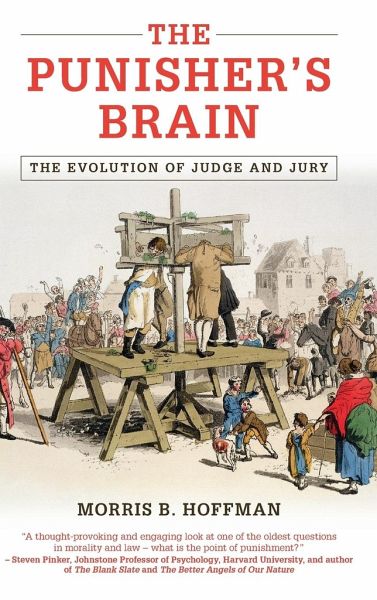
The Punisher's Brain
Versandkostenfrei!
Versandfertig in 1-2 Wochen
38,99 €
inkl. MwSt.
Weitere Ausgaben:

PAYBACK Punkte
19 °P sammeln!
Using evidence and arguments from neuroscience and evolutionary psychology, Morris B. Hoffman traces the development of deeply held legal principles throughout human evolution, describing how the drives to punish and forgive became codified into our legal system, and the responsibility for punishing and forgiving assigned to a judge and jury.














